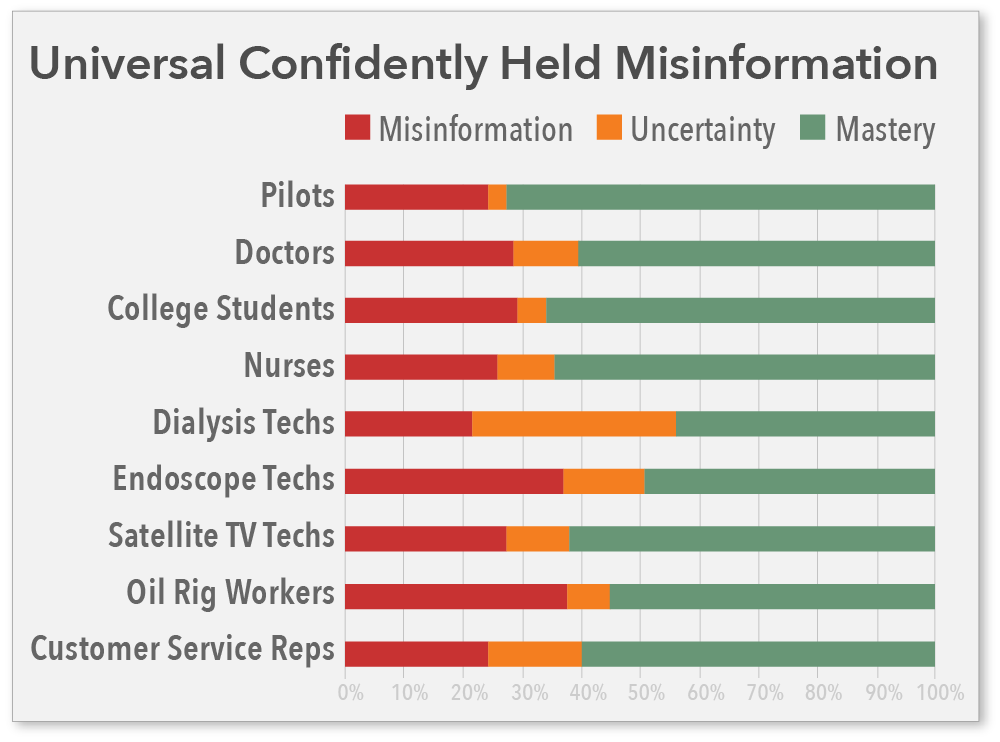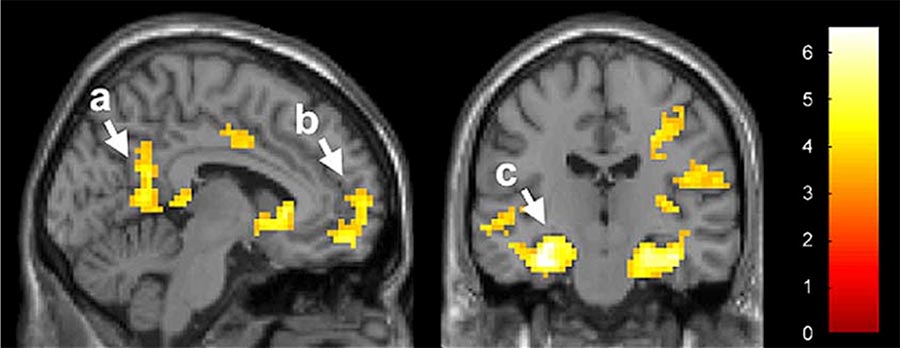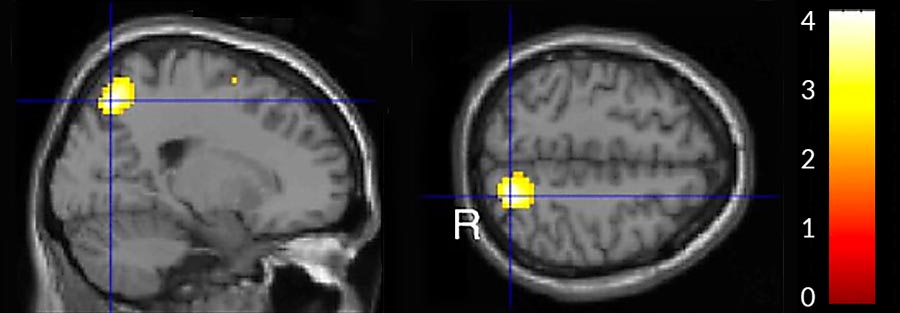Why Is Confidence Important
You use the feeling of confidence all day every day to make decisions that lead to action or inaction. If you are confident, you act. If you have doubt, you hesitate. If you don’t know, you go no further. This is the linkage between knowledge, encoded and stored in the brain as memory, and behavior in the physical world. Every creature must have a way to gauge the likelihood that knowledge is correct before acting on it. It must make a good prediction that what it thinks is true really is true before acting. Confidence is that prediction coming to us in the form of a feeling.
Furthermore, your own confidence is judged by others as a clue to whether you are credible. There’s a trap here since all of us want to offer the image that we are indeed credible, bold, and persuasive. Unfortunately, we often feel confidence and project it to others when, in reality, we have no good reason to be confident other than its associated bravado.
Two Reasons to Ask About Confidence
First, asking about confidence triggers certain switches in the brain that cause greater information storage strength. These are physical, measurable phenomenon like attention, uncertainty, curiosity, and metacognition (thinking about one’s thinking), all of which drive long-term memory formation.
Second, knowing a learners confidence is how the platform can determine where confidently held misinformation exists in the mind of a worker. After 1.7 billion learner interactions Amplifire has revealed a universal truth: that there is more confidently held misinformation in people’s minds than anyone realized. It’s not good for them, and it represents clear risk for their organization. This graph shows the percentage of confidently held misinformation that Amplifire has uncovered in thousands of professionals in a wide range of industries—from pilots to doctors to satellite TV technicians to sales associates.

The Feeling of Confidence Is Psychological
How does this feeling arise? Let’s say someone asks you about almost anything, let’s say they ask about the relationship of protons and electrons. The question contains words that are cues causing you to search through your memory (although you don’t really notice). Words like proton first cause you to make a rapid assessment for familiarity. If the feeling of familiarity is present, or if memories about atomic particles easily comes into consciousness, then you begin to judge the memory as confidently held.
Next, your brain reports just how much information can be recalled into consciousness. This report relates to the strength of both the retrieval pathway back to the stored information and the storage strength of the information itself. The amount of information you can access gives rise to a more refined sense of your confidence in the recollection.
That’s the current view, albeit abbreviated, of the psychological explanations for confidence. What about the view from neuroscience?
The Feeling of Confidence Has Neural Correlates
This research is ongoing, but the subjective feeling of confidence seems to derive from a complex network of modules in an area called the limbic system. Brain regions involved in this network that are involved in the subjective experience of high or low confidence include the hippocampaus, parahippocampus, amygdala, thalamus, anterior and posterior cingulate, and medial prefrontal cortex.

a) anterior and posterior cingulate b) medial prefrontal cortex c) medial temporal lobe (Chua, Schacter, et al)
One would assume that the sensation of doubt would come from an absence of activation in the confidence network, but imaging studies suggest that the right posterior superior parietal cortex becomes active when doubt is experienced.

